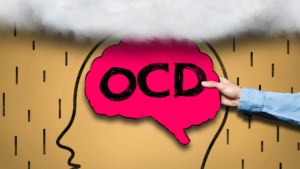
Medication can be a tricky topic to navigate. On the one hand, treating injuries and illnesses is often necessary. Still, on the other hand, there are risks associated with taking medication that must be weighed carefully before making any decisions.
In this blog post, we’ll discuss the risks and benefits of taking medication so that we can make an informed decision regarding our health.
Types of Medication
There are four main types of medication: prescription, over-the-counter, natural, and complementary. Each has risks and benefits that must be considered before taking any medication.
Prescription medications can only be legally obtained with a doctor’s prescription. They are regulated by the Food and Drug Administration (FDA). They must undergo extensive testing before they are made available to the public.
Prescription medications have many uses and can effectively treat severe medical conditions. However, they also come with a risk of side effects and other complications.
Over-the-counter (OTC) medications can be purchased without a prescription. They are generally less potent than prescription medications and have fewer side effects.
OTC medications can treat minor ailments such as headaches or colds. However, they should only be used to treat severe medical conditions after first talking to a doctor.
Natural medications are those derived from plant or animal sources. They are not regulated by the FDA and have not undergone the same level of testing as prescription or OTC medications.
They may be effective for treating certain medical conditions but can also have dangerous side effects. It is essential to talk to a doctor before taking any natural medication.
Complementary medications are those used in addition to conventional treatments, such as surgery or chemotherapy. They include herbs, vitamins, minerals, homeopathy, and other substances.
These medications are not regulated by the FDA and may not be safe or effective. It is essential to talk to a doctor before taking any complementary medicines.
Benefits of Taking Medication
Medication has many benefits, including improved health and quality of life. However, it is essential to understand the risks and benefits of medication before starting any new medication. Here are some of the potential benefits of taking medication:
Improved Health
Medication can help improve our overall health by treating conditions that may otherwise go untreated.
Quality of Life
Medication can also improve our quality of life by relieving symptoms that may interfere with daily activities.
Longer Life Expectancy
Some medications can extend our life expectancy by treating severe medical conditions.
Of course, there are also risks associated with taking medication. These risks include side effects, drug interactions, and dependency. Before starting any new medicine, weighing the risks and benefits is crucial.
Risks Associated with Taking Medication
There are risks associated with taking medication, even when prescribed by a doctor. These risks can include side effects, interactions with other drugs, and allergic reactions. It is essential to understand these risks before starting any medication.
Side effects are the most common type of risk associated with medication. They can range from mild to severe and occur at any time during treatment.
The most common side effects include headache, nausea, and fatigue. Some side effects go away after a few days, but others may last for weeks or longer.
Interactions between medications can also be a concern. When two or more drugs interact, they can change how each one works.
This can cause serious problems, including increased side effects or decreased medication effectiveness. Allergic reactions are another type of reaction that can occur when taking medication.
Symptoms of an allergic reaction include hives, swelling, difficulty breathing, and chest pain. If we experience any of these symptoms after starting a new medication, stop taking the drug and seek medical help immediately.
Another significant risk is being prescribed the wrong medication by a doctor. This can happen due to reasons like misdiagnosis, lack of proper medical history, or human error. Taking the wrong medication may not treat the underlying condition effectively and can lead to adverse reactions or complications from drug interactions.
Taking the wrong medication can lead to serious side effects, putting the patient at risk of liver damage or life-threatening reactions. This kind of error may amount to medical malpractice, and the patient can seek legal action against the practitioner responsible. With the support of a skilled medical malpractice lawyer from firms like Schuerger Shunnarah Trial Attorneys (warfor214.com), patients can pursue compensation for the harm caused by negligence.
For instance, lawsuits involving medications like Zantac have highlighted concerns about the long-term risks of certain drugs. Zantac, once a popular treatment for heartburn, has been linked to serious side effects, prompting many individuals to file legal claims. Legal cases of this nature often involve detailed investigations, extensive documentation, and medical evidence to establish the link between the drug and the alleged harm. how long will the zantac lawsuit take? What compensation might be available? And how can individuals gather strong evidence to support their claims? Addressing these questions can help individuals better understand the legal process and make informed decisions about pursuing justice.
The Role of Medication in Treating Injuries
Medication can be an essential part of the treatment of injuries. Still, it is crucial to understand the risks and benefits before using any medication.
Over-the-counter (OTC) medications may provide some relief from pain and swelling, but they can also have side effects. Some prescription medications can help reduce inflammation and pain but may also have serious side effects.
Talking to a doctor about all the risks and benefits before starting any medication is essential. Moreover, having a complete understanding of your healthcare coverage can impact your treatment choices. For instance, when exploring Medicare Plans in Minnesota, it can be important to know which medications are covered and how they align with your needs. This ensures that you’re not only aware of the potential side effects but also have access to the most suitable treatment options.
Alternatives to Taking Medications
Many alternatives to taking medications include lifestyle changes, supplements, and natural remedies. Lifestyle changes such as eating a healthy diet, getting enough exercise, and reducing the stress often help to improve symptoms.
Supplements such as omega-3 fatty acids, magnesium, and probiotics can also be helpful. Natural remedies such as acupuncture, meditation, and yoga can also treat various conditions.
It is crucial to speak with a doctor before making any changes to ensure they are safe and effective for our particular condition.
Self Medicate Responsibly and Honestly
Medication can be a powerful tool in managing our health. Still, it is essential to understand the risks and benefits of any medication we take. We hope this article has provided insight into these risks and benefits and why we must discuss any medications we are considering with a doctor.
Remember, knowledge is power – when armed with information on potential side effects, and possible interactions with other drugs or foods, we can make an informed decision about whether or not a particular medication is right for our needs.



